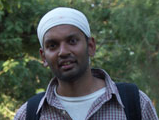 A theme that came up again and again during our London/Cambridge Traveling Geeks tour was that social media, and especially those that provide “immediate” access to company representatives (such as Twitter), are really changing not only how fast a company can respond to customer questions and problems, but are relocating (dislocating?) where the control of the customer relationship resides within many companies. Twitter provides 24/7 access to company representatives (if they’re actually online), and it shifts the decision point or the point at which the company takes responsibility for a problem, outward from the PR department and “C-level” executives (CEO etc.) to the actual front lines where the company’s employees are talking with the customers! Here’s what Robert Scoble said about this in a roundtable held in Cambridge on Friday. The sponsor of this session, Omobono, also has put up a page about the Traveling Geeks visit.
A theme that came up again and again during our London/Cambridge Traveling Geeks tour was that social media, and especially those that provide “immediate” access to company representatives (such as Twitter), are really changing not only how fast a company can respond to customer questions and problems, but are relocating (dislocating?) where the control of the customer relationship resides within many companies. Twitter provides 24/7 access to company representatives (if they’re actually online), and it shifts the decision point or the point at which the company takes responsibility for a problem, outward from the PR department and “C-level” executives (CEO etc.) to the actual front lines where the company’s employees are talking with the customers! Here’s what Robert Scoble said about this in a roundtable held in Cambridge on Friday. The sponsor of this session, Omobono, also has put up a page about the Traveling Geeks visit.
Backstage Pass- Real Customer Service
 Customer service takes dedication, and Craig Newmark, founder of Craig’s list, takes this to a degree you won’t see many places. Every day, whether he’s at home in San Francisco or on the road in England, he attends to his half-time position as customer service rep for the institution he founded.
Customer service takes dedication, and Craig Newmark, founder of Craig’s list, takes this to a degree you won’t see many places. Every day, whether he’s at home in San Francisco or on the road in England, he attends to his half-time position as customer service rep for the institution he founded.
Each night, as we’ve been winding up or down the evening activities, Craig has bowed out at a reasonable hour to go online and attend to customer issues as they come up. Being +8 hours from San Francisco’s time zone has helped, but it’s still a remarkable thing to see this kind of dedication.
Change the economics of how the game is played
 The Dalai Lama Foundation runs primarily on small-to-medium sized contributions. We have two income streams – one is composed of individuals donating to support specific programs that are proposed and operated by third parties, and the other is individuals donating to Foundation-run programs. In the latter category are our general fund (lots of programs) and our peace and ethics curriculum fund. These are the most important programs in terms of our day-to-day attention, and are the programs we’re trying to expand this year.
The Dalai Lama Foundation runs primarily on small-to-medium sized contributions. We have two income streams – one is composed of individuals donating to support specific programs that are proposed and operated by third parties, and the other is individuals donating to Foundation-run programs. In the latter category are our general fund (lots of programs) and our peace and ethics curriculum fund. These are the most important programs in terms of our day-to-day attention, and are the programs we’re trying to expand this year.
I recently heard about my friend Alan M. Webber’s recently-published book Rules of Thumb. (Also see his book blog.) I have been reading the reviews and publicity – and I like what I hear, so I ordered Rules of Thumb as an e-book (lots cheaper than buying a paper book) and I’ll skim it later today. I met Alan just about two years ago, over an arranged brunch thanks to Betsy Burroughs, and then spent a day strategizing about the Waldzell Meetings.
One of Alan’s rules, chosen by Tim Ferriss for a review, is “RULE #24 – If you want to change the game, change the economics of how the game is played.” I like this idea. Here’s how I propose to start… [Read more…]
Google ruled by engineers, Apple ruled by designers
 |
Fundamentally different approaches to problem-solving, nope design, nope creating products, nope life! |
Yes, it’s true that a team at Google couldn’t decide between two blues, so they’re testing 41 shades between each blue to see which one performs better. — Doug Bowman, Goodbye Google
I love this farewell post by Google’s visual design lead because it confirms a theory I’ve long held: that Google is a company where engineers are the ruling class, while at Apple it’s designers. – Buzz Andersen, Sci-fi Hi-fi
This just blew me away because of my experiences with people from both Apple and Google.
Charity Focus’ Nipun Mehta
 |
| Nipun Mehta as pictured
on his blog |
I can’t believe that I’ve been blogging so long, and have never blogged Nipun Mehta. It’s time to start making amends…
I’m going to start by pointing you at an audio interview that Michael Lerner of The New School conducted with Nipun earlier this year.
In April 1999, Nipun and three friends started Charity Focus as an “experiment in generosity.”